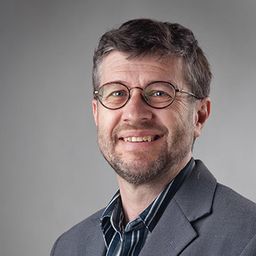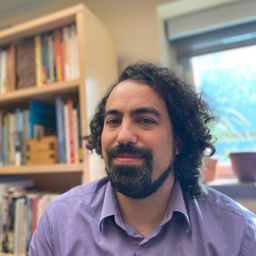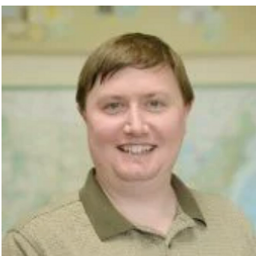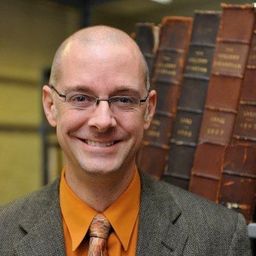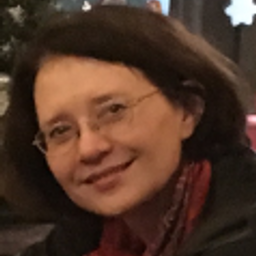
Après une thèse soutenue en 2021, Pascale Nachez poursuit son activité de recherche en tant que chercheur associé à l’Université de Haute-Alsace (Mulhouse – France), dans le Centre de Recherche sur les Économies, les Sociétés, les Arts et les Techniques. Son travail actuel consiste à la comparaison des villes historiques textiles européennes en s’appuyant sur le patrimoine immatériel que constitue l’étude des brevets historiques.
Nachez, Pascale, Un avenir pour le patrimoine industriel de trois “ Manchester “ : Manchester, Mulhouse, Łódź, trois villes au coeur de la révolution industrielle textile en Europe. Leur patrimoine immatériel, thèse de doctorat, archéologie industrielle, Université de Haute-Alsace (Mulhouse), 2021.
Nachez, Pascale, "Comment Mulhouse, inspirée par Manchester, a construit son modèle industriel et diffusé ses innovations en Europe et dans le monde", Revue d’Alsace [En ligne], 147 | 2021, URL : http://journals.openedition.org/alsace/5059 ; DOI : https://doi.org/10.4000/alsace.5059
Nachez, Pascale, "Łódź et les rois du coton, hier et aujourd’hui", Bulletin de la Société Industrielle de Mulhouse, Innovative Red brick cities®, N° 839, 2019/2020, p-54-56.
Nachez, Pascale, "Le Patrimoine industriel dans tous ses états", in Dialogues Mulhousiens, n° 1, Patrimoine(s), Journées Doctorales Humanités 2017, p. 225-234. [En ligne : http://dialogues.hypotheses.org/]
Nachez, Pascale, Łódź, Manchester, Mulhouse: 3 “cottonopolis”, 3 social communities for a sustainable urban development (Poster), ICOMOS 2017 "Heritage and Démocracy”, New Dehli, 12-15 déc. 2017
Nachez, Pascale, Mulhouse, un patrimoine pour l’industrie de demain, regard à travers les écrits de Louis Bergeron, Journées d’étude en hommage à Louis Bergeron à la Société d'Encouragement pour l'Industrie Nationale, CILAC, Paris, 2-3 décembre 2016.
Nachez, Pascale, La valeur économique du patrimoine industriel : Exemples de sites industriels textiles, What does heritage change, ACHS 2016, Université du Québec et Concordia, Montréal, 3-8 juin 2016. https://sites.grenadine.co/sites/patrimoine/en/ACHS2016/participants/905
Activité professionnelle
Depuis 1999 à l’Université de Strasbourg et l’Université de Mulhouse : une dizaine de postes occupés auprès des équipes politiques en soutien aux dossiers stratégiques tels que le développement de la recherche (investissements d’avenir, sciences ouvertes, rankings, interdisciplinarité…), numérique, coopération régionale (site Alsace), transfrontalière (EUCOR), internationale (alliance européenne EPICUR) …
1989-1999 : Brasseries Kronenbourg (groupe Danone) dans des fonctions RH, Marketing, Développement, Fondation.
Pascale Nachez est également diplômée de l’École de journalisme de Strasbourg (1994) et de l’Université de Grenoble (Master Économie internationale et stratégies d’acteurs, 2006).
Sessions in which Pascale Nachez participates
lunes 6 junio, 2016
jueves 1 septiembre, 2022
Sessions in which Pascale Nachez attends
domingo 28 agosto, 2022
Join the conference organisers and TICCIH board members for a welcome cocktail and some festive words of introduction, in the former forge of the École technique de Montréal, founded in 1909, now part of the Université du Québec à Montréal campus.
lunes 29 agosto, 2022
Si la vallée du canal de Lachine a été le berceau de l’industrialisation canadienne, la géographie industrielle métropolitaine ne s’y est pas confinée, peu s’en faut, Outre les grandes concentrations d’entreprises des quartiers centraux, elle est constituée des réseaux infrastructuraux, d’une douzaine de centrales hydroélectriques et des ensembles manufacturiers disséminés dans une quinzaine de petites villes aujourd’hui intégrées dans l’aire métropolitaine. La conférence proposera un surv...
martes 30 agosto, 2022
Efforts to preserve industrial heritage occurs in a socio-economic and political context. But what is being preserved and for whom? And, relatedly, what is the relationship between industrial heritage sites and the deindustrialized working-class communities that often adjoin them? The keynote will consider the ways that the preservation of Montreal’s Lachine Canal, Canada’s premier industrial heritage site, has enabled gentrification processes that have forc...
miércoles 31 agosto, 2022
Visit of the permanent exhibition : À cœur de jour, grandeurs et misères d'un quartier populaire, which traces the history of one of the oldest industrial and working-class neighborhoods in Montreal. Discovery of the old Généreux bathhouse, a building that recalls a time when most working-class dwellings had neither bath nor shower. Presentation of some elements of the neighborhood's heritage on the way between UQAM and the Écomusée.The visit will be guided in French by René Binette...
This tour offers an excursion on a privatized deck of Montreal's bateau-mouche; a playful guided tour that takes in some of the city's industrial landmarks from the St. Lawrence River.The tour is priced to cover additional costs; the fee includes access to the bateau-mouche, the tour and a drink.Departure will be on foot from the conference venue; boarding is at 3:45 p.m. at the l...
In this lecture, I would like to talk about deindustrialised communities, heritage and memory in the context of right-wing populism. Drawing on studies of memory and heritage, I argue that right-wing populists have cornered the market on talking about the past of deindustrialised communities. They have successfully misrepresented this rich and complex history to fuel rage, resentment, fear and reactionary nostalgia. Indeed, ‘the past’, and in particular the industr...
jueves 1 septiembre, 2022
The textile sector led industrialization and urbanization worldwide for nearly three centuries. Textile industries established global trade networks based on transport, skills, knowledge, and power. They changed territories, landscapes, and cityscapes. Mill complexes and their infrastructure - canals for power and transport, railways, warehouses, and workers' housing- form historic rural or urban landscapes and represent global chains of production. This textile heritage includes tangible ...
The use of industrial heritage is a profoundly important factor in the process of creating a sustainable economic, social, and political future for many communities occupying industrial heritage landscapes. More than ever we recognize the need for such communities to be capable of shaping and expressing their heritage in different forms in the context of current events and issues, and in doing so to inform both contemporary decision-making as well as the way their industrial heritage is re...
Meet the authors Heike Oevermann and Mark Watson, who together with Bartosz Walczak completed the TICCCIH comparative thematic study: “The Heritage of the Textile Industry” (Lodz, 2022),It may be downloaded free here: The Heritage of the Textile Industry (lodz.pl) or
This lecture will argue that the landscapes of industrial heritage that can be found in different parts of the world are directly related to the place-specific trajectories of deindustrialization. In other words: the different ways in which deindustrialization impacts on local communities has a direct bearing on the emergence of forms of industrial heritage. I will differentialte between deindustrialization paths and related industrial heritage regimes in a) Anglo-...
viernes 2 septiembre, 2022
In the refusal of people in communities abandoned by industrial capital to abandon their own places, we can read an implicit critique of the mobility and unaccountability of capital, raised by those who were once inside (however tenuously or uncomfortably) and now find themselves marginalized, “left behind.” The desire to catch up again, whether through attracting new investment or transvaluing abandoned sites as tourist attractions, makes this an essentially conservative critique that is ...
Come and share the good times of the congress and celebrate your scientific and professional discoveries in a former fruit jam factory, Usine C, built in 1913 and transformed at the end of the 1970s into a place for creation and dissemination.Discover Montreal's gastronomy thanks to an exceptional caterer. Learn about Montreal's musical heritage and the history of the industrial district that brought it to life. Then hear and experience Quebec's musical tradition as you are carried ...

